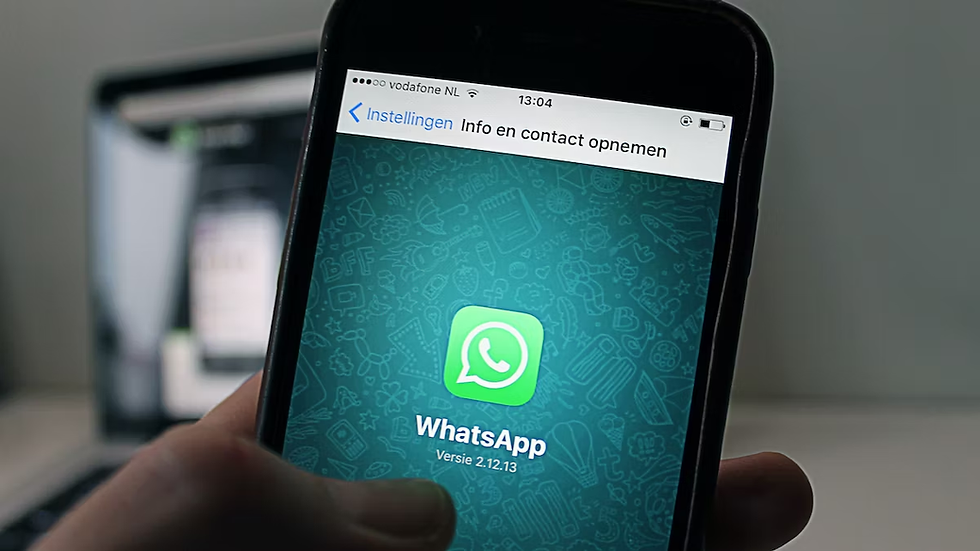Chatbots vs. Human Agents on WhatsApp: Which is Better For Your Business?
- Ayan Shaikh
- Sep 14, 2023
- 4 min read
Introduction
In today's rapidly evolving digital landscape, businesses are continuously seeking innovative avenues to enhance their customer service. One such platform that has taken center stage is WhatsApp. As its user base has grown exponentially, a pressing debate has emerged among businesses: Should they deploy chatbots or rely on human agents for customer support on this platform? Both avenues present unique advantages and challenges. The decision often hinges on the specific requirements of a business and the expectations of its clientele. This article delves into the pros and cons of each approach, aiming to provide a comprehensive understanding to help businesses make an informed choice.
Advantages of Chatbots on WhatsApp
Chatbots, powered by advanced algorithms and artificial intelligence, have revolutionized the way businesses interact with their customers on platforms like WhatsApp. Their primary advantage is their 24/7 availability, ensuring that customers receive immediate responses at any hour. This constant availability is especially crucial in our globalized world, where customers from different time zones interact with businesses. Furthermore, chatbots can handle multiple standard queries simultaneously, streamlining customer interactions and ensuring faster response times. From a financial perspective, chatbots can lead to significant savings, reducing the overhead costs associated with human-operated customer service centers.
Drawbacks of Chatbots on WhatsApp
While chatbots offer numerous advantages, they are not without their limitations. One of the most significant challenges is their inability to fully comprehend and address complex or unique customer queries. Their responses, being automated, can sometimes lack the empathy, nuance, or understanding that a human agent can provide. This can lead to customer frustration, especially when a chatbot repeatedly fails to grasp a customer's issue. Moreover, while advancements in AI have enabled chatbots to offer more personalized experiences, they still fall short of the deep personalization that human interactions can provide.
Advantages of Human Agents on WhatsApp
Human agents bring a level of personal touch and understanding to customer interactions that chatbots currently cannot replicate. They can dynamically adapt their responses based on the flow of the conversation, ensuring that the customer feels heard and understood. Human agents can also pick up on cultural nuances, emotional undertones, and other subtle cues in a conversation, tailoring their responses accordingly. Their ability to draw from past experiences and provide solutions based on a combination of training and intuition is unparalleled. This human touch can lead to more meaningful and satisfying customer interactions.
Drawbacks of Human Agents on WhatsApp
Despite their numerous advantages, human agents come with their own set of challenges. One of the primary drawbacks is their limited availability. Unlike chatbots, human agents cannot be available 24/7 without significant costs. Additionally, while chatbots can handle multiple queries simultaneously, human agents can only manage a limited number of interactions at a given time. This can lead to slower response times, especially during peak hours. Human errors, which can arise from fatigue, misunderstandings, or other factors, are another concern. Lastly, the costs associated with training, salaries, and infrastructure for human agents can be significantly higher than implementing chatbots.
Comparing Chatbots and Human Agents on WhatsApp
When weighing the pros and cons of chatbots and human agents, businesses must consider several factors. Chatbots excel in efficiency, cost-effectiveness, and availability. However, they may fall short of understanding complex issues and providing a truly personalized experience. On the other hand, human agents offer a depth of understanding, empathy, and personalization but may be slower and more expensive. The ideal choice often depends on the nature of the business, the complexity of customer queries, and the resources available.
The Importance of Collaboration between Chatbots and Human Agents
In the ever-evolving landscape of customer service, a synergistic approach that combines the strengths of both chatbots and human agents may offer the best solution. Chatbots can serve as the first line of interaction, handling standard queries and gathering initial information. When a query becomes too complex or requires a human touch, it can be seamlessly transferred to a human agent. This collaborative approach ensures that customers receive timely, efficient, and personalized service, maximizing satisfaction.
Real-World Examples and Case Studies
Several businesses across various sectors have successfully integrated both chatbots and human agents into their customer service strategies. For instance, a leading e-commerce platform employs chatbots for tasks like order tracking, while human agents handle more complex issues like returns and complaints. This dual approach ensures that customers receive timely responses while still benefiting from the personal touch of human interactions. Such success stories highlight the potential of a combined approach to optimizing customer service.
Conclusion
The debate between chatbots and human agents on WhatsApp is multifaceted, with no one-size-fits-all answer. Both avenues offer unique advantages and come with their own set of challenges. For businesses, the key lies in understanding their specific needs, the expectations of their customers, and the resources at their disposal. In many scenarios, a combined approach that leverages the strengths of both chatbots and human agents might offer the most effective solution. As technology continues to evolve, businesses must remain adaptable, always striving to offer the best possible service to their customers.
FAQs
Q1: Can chatbots replace human agents on WhatsApp?
While chatbots are efficient, human agents are irreplaceable for complex issues.
Q2: Are chatbots more cost-effective?
Yes, but the value of human interaction is paramount.
Q3: How do customers view chatbots vs. human agents?
Some prefer chatbots' speed, while others value human empathy.
Q4: Can businesses use both on WhatsApp?
Yes, many use a combination for comprehensive customer service.
Q5: Any success stories with both?
Many e-commerce platforms use both, ensuring customer satisfaction at every step.



Comments